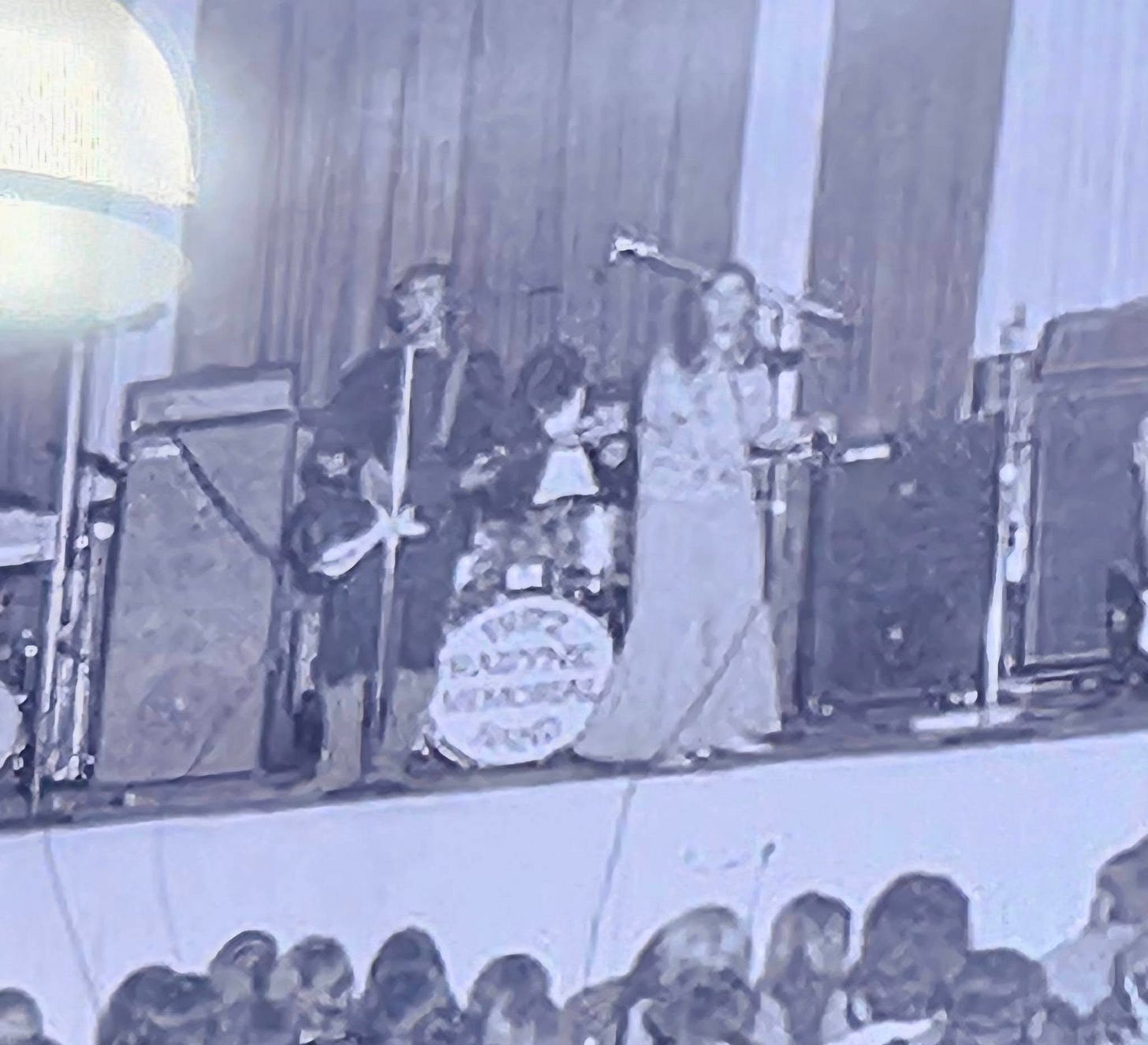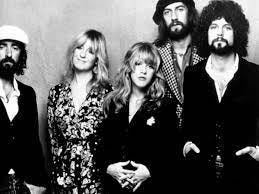When I was a little girl and my family visited London, I thought the Hippodrome nightclub at the edge of Soho was the most glamorous place on earth, and that all the most fun things that ever happened began and ended in Leicester Square. Now that I am old I see what a terrible misconception this was, but it still feels faintly magical to me to find myself there, catching a late tube home, especially if I’ve just seen a banging musical like I did the other night.
Stereophonic premiered on Broadway in 2023 and won a bunch of Tony’s, but I ignored it at the time because I live in the provinces and can’t be going to New York very often. So lots of people may have had the same thoughts I had seeing it two years ago, but time makes you bolder and even children get older, so if you’re also from the provinces and had no chance of seeing it at the time like me, here’s the not-written-by-AI synopsis of my thoughts.
Stereophonic is a play about a fictional rock band in 1976, recording the follow-up record to their previous smash hit, and they are having trouble midwifing it in the recording studio. As previously stated, the band in Stereophonic is fictional, and nameless. It is fake, for sure. You can tell by the description of it that someone must have made it up, because here are the unlikely details of the band in question:
- 3 men, 2 women
- 3 are British, 2 are American
- There are two couples, one woman who plays keyboards is married to the bass player, and the other couple is American and the woman in the couple’s songs are markedly more successful than everyone else’s.
- They do a lot of blow.
- The two couples break up whilst making this record.
So unlikely, right?
Obviously, I jest: it is in fact demonstrably the story of Fleetwood Mac making the album Rumours, though several characters (notably Lindsay Buckingham) are portrayed so negatively that it clearly had to be fictionalized. The playwright, David Adjmi, denies any resemblance to that band, even when the final song (written by Will-not-Win Butler) has a breakdown at the end that sounds exactly like the one in “The Chain.” It's a pity, though, because the play might be slightly more powerful if the legit music could be utilized. Imagine if, when it all comes together and the shouting stops, the band listened to “Dreams” or “Go Your Own Way” and then the curtain came crashing down.
(But this is an issue with all books and movies about bands that use pretend music. If the music was good enough to not be pretend, it wouldn’t be in a book or a movie, would it?)
Stereophonic probably doesn’t present everyone with the vision of making music they’d like to see, and it also demands a bit of patience for its audience. Indeed, there’s a whole thread on reddit devoted to whether it’s boring or not, because the first act is one hour and 45 minutes of the characters just sitting around in the studio being boring. But I think it’s justified, because that is what happens in actual recording studios. Making stereophonic music is (or perhaps we should say ‘was’) the most boring process on earth, in my experience, particularly when the drums are being recorded but really all of it is just paint drying-ly terrible to witness, and Stereophonic demands that you experience that to understand it better. If you need a lot of plot or drama, this is not the play for you, so skip it. I, however, felt that it illuminated a lot about the process of creation in the age of mechanical reproduction. I am not sure that this is how music gets made now, in the age of AI, but it was back when I was a rock critic and it’s interesting to remember it from a distance.
Stereophonic also sets up a situation where putative rock stars, now rich and famous, live these tiny little bubble existences that don’t look like any fun at all, which I am sure is also how it is today. This particular band reminisces at times about their previous incarnation as ordinary people, making custard, playing scrappy gigs, dreaming of recording…so different than what is happening inside their expensive studio, where some of them end up doing a lot of drugs, and all of the men relentlessly and remorselessly pick on the women: the gender dynamics are ugly and poisonous and yet sadly familiar, which they probably still are in cases like this. Only every now and then does the music click, and then it all seems worthwhile and worthy.
One of the things the play does particularly well is show where money is being spent on music. You know how you’d hear that a band has a big budget to make their LP, and you’d wonder what that meant? This play shows exactly where it’s going, and why it is all taking so long. Then a band like Nirvana comes along and makes a great record for $606, and suddenly the paradigm changes…and then it changes again.
Today music isn’t made this way, as far as I know. Indeed, I think people just record riffs, on their iphones, and then sell them to TikTokers or something - I don’t even know. And maybe, given the painful birth of this record, that’s not even a bad thing, but it shows how far we’ve come. Unfortunately, one place we haven’t come very far is in sexism, which is, if anything, worse than back then. It is hard to watch the women get bullied so badly, it’s really only bearable because you know the real life lady she’s based on is going to smash the ceiling this guy is building to smithereens. But on the other hand, a great thing about this play is how well it passes the Bechdel Test. The characters known as Diane and Holly, but let’s just call them Christine and Stevie for christ’s sake, are not only the most sympathetic and the smartest characters in it, but they band together against the boys, staying supportive of each other throughout a truly hellish situation…just like most women would, honestly, at least in real life. And yet when you see it happening in a fictional piece you realize how seldom you see a script with TWO women with their own back stories, whose dialogue is equally important to the proceedings. It’s almost weird.

But come to think of it, it’s not just what makes this play stronger, it’s what made Fleetwood Mac so strong as well. In the end, it kind of surprised me, how enjoyable it was to reflect on that band in particular, in this particular setting, but part of my enjoyment may also have been that Stereophonic is set in California; in the first half, in Sausalito, and in the second, in LA, and California is never far from my mind right now. It is so painful to look at your home state from afar as it is ravaged by fire or whatnot (for lack of a better term, I am going to call what is ailing it at the moment ‘whatnot’) but I also desperately don’t want to look away, so this was a good compromise, and a reminder of a place the way it once existed, a place that shaped so many of our desires. Because Fleetwood Mac’s music evokes Los Angeles to me in the same way that reading Raymond Chandler does; together, they shaped my vision of the city, the one sonically, the other mentally. “The smell of sage drifted up from a canyon and made me think of a dead man and moonless sky,” wrote Chandler, in Farewell, My Lovely (1940).
“Straggly stucco houses were moulded flat to the side of the hill, like bas-reliefs. Then there were no more houses, just the still dark foothills with an early star or two above them, and the concrete ribbon of road and a sheer drop on one side into a tangle of scrub oak and manzanita where sometimes you can hear the call of the quails if you stop and keep still and wait. On the other side of the road was a raw clay bank at the edge of which a few unbeatable wild flowers hung on like naughty children that won’t go to bed.” Is this not just another way of saying, “And have you any dreams you'd like to sell? Dreams of loneliness, like a heartbeat drives you mad…in the stillness of remembering what you had…
And what you lost
And what you had
And what you lost






